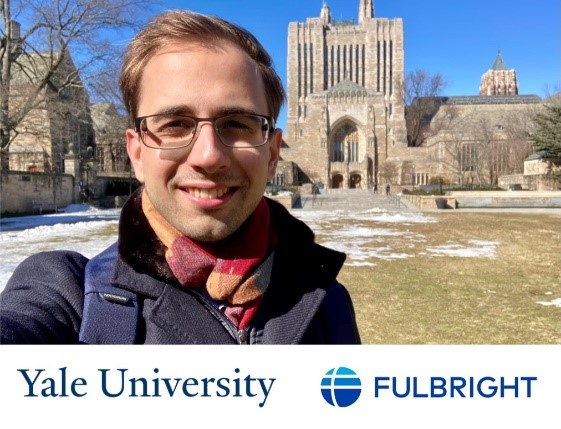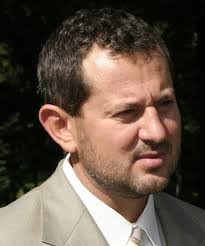Institute of Management Research News
Conference Report, OTKA Applications, Recent Publications and Máté Baksa at Yale UniversityConference Report, OTKA Applications, Recent Publications and Máté Baksa at Yale University
01.03.2021.

Máté Baksa of the Institute of Management has the privilege to spend the Spring semester of 2021 at Yale University as a Fulbright visiting student researcher. He works under the auspices of Professor Balázs Kovács (Ph.D., Stanford University, 2009), an alumnus of both Corvinus and the Rajk College of Advanced Studies. Máté’s research interest lies in organizational social network dynamics, and he now has the invaluable opportunity to learn from many of the best in his field at the Yale School of Management and the Yale Institute for Network Science. Established in 1946, the Fulbright Program aims to improve intercultural relations and cultural diplomacy between the people of the United States and other countries by exchanging persons, knowledge, and skills. In the past 75 years, it helped hundreds of thousands of outstanding students and scholars to grow professionally. Prospective graduate students can apply for a Fulbright scholarship in the academic year 2022-2023 until May 17, 2021, at https://www.fulbright.hu.
Recently accepted and published articles (Q1-Q2):
Sándor Takács (2021): Managing the Flow Experience – The Dilemmas of Participatory Governance in Hungarian Social Enterprises, Journal of Social Entrepreneurship, DOI:10.1080/19420676.2021.1874487
https://www.tandfonline.com/doi/full/10.1080/19420676.2021.1874487
Henriett Primecz (2021): Challenges of a Social Enterprise Supporting Mothers in Hungary, Journal of Organizational Ethnography (under production, accepted on 16th of February 2021)
Both articles are result of by the project nr. EFOP-3.6.2-16-2017-00007, entitled Aspects on the development of intelligent, sustainable and inclusive society: social, technological, innovation networks in employment and digital economy. The project has been supported by the European Union, co-financed by the European Social Fund and the budget of Hungary.

Professor Dr Sándor Takács as a lead researcher has submitted an OTKA K research application with 18 senior and junior colleagues and PhD students in Institute of Management.
The title of submitted project research is: The Organization and Leadership of the Future. The aim of this research is to explore and model the organizational characteristics and best leadership practices that are already present today and determine the future, in the long run, using qualitative methods. The research also intends to reveal the difference between the characteristics of successful organizations of the future and the domestic sample with a quantitative, representative study conducted among Hungarian organizations. In order to put the scientific results into practice, proposals will be prepared for the leaders, employees of the organizations, and policymakers to understand the reasons for the lag and to adapt the successful organization of the future as widely as possible in Hungary. In addition to the most common new organizational and management solutions, the research examines the impact of digital technologies on organizational processes. These mostly improve operational efficiency, but also contribute to meaningful work, which is also a separate area of the research. Another separate area of research is the study of the interactions between non-profit and for-profit organizations, as social enterprises can provide a valuable answer to the challenges of the future and contribute to a more sustainable operation.
Gergely Kováts, as a principal investigator has submitted an OTKA FK research application focusing on how the reform of ‘model change’ started in 2019 affects higher education institutions. How does their governance and management system change? How does the employment relationship of academics and staff change? During the reform, the maintainers of the institutions will be private foundations instead of the state. The boards of trustees of the foundations may determine the degree of freedom of the institution they maintain in terms of its budget, internal management system, institutional and employment strategy. Already several different practices seem to emerge. As each institution will be maintained by a different foundation, we can assume that the governance structure of the institutions will be more heterogeneous than at present, and this will change over time. Each solution works with different efficiency and effectiveness. The nature, implementation, and results of the new governance structures, the challenges, and good practices are worth exploring and presenting to both the public and the actors involved in the governance of the institutions.
The research project involves 11 researchers and PhD students from the Institute of Management and from other Hungarian universities (BGE, ELTE, SZTE).
EURAM Conference was organized online between 4 – 6 December, and Henriett Primecz was a convenor of Migration / Identity / Power: Integration and Cross-Cultural Management Challenges track within Gender, Race and Diversity within Organizations Strategic Interest Group.